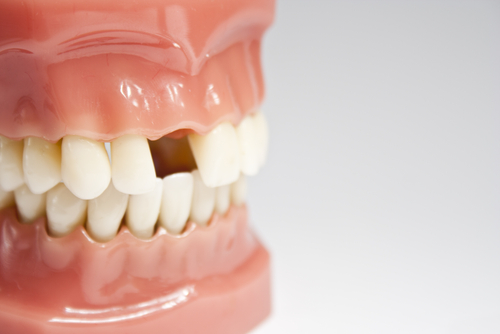Once your baby teeth are replaced with adult teeth, they are meant to last a lifetime. Unfortunately, if you have a severely infected or decayed tooth, or when a tooth is loosened by gum disease or trauma, this might not be the case. Although sometimes it is possible to restore the tooth, this may not always be the most beneficial solution. In this case, our dentist in Ajax will reluctantly suggest removing the tooth. Rest assured, tooth removal is always the last option and is something we only recommend after exploring all other treatments.
Why Can’t a Tooth Always Be Saved?
Sometimes a tooth is so severely infected, the damage is irreversible. Usually, when a tooth is infected, it is possible to save it with root canal therapy in Pickering, removing the infection from deep in the dental pulp. However, if the infection is too severe, tooth removal may be the best option. This might also be the case when someone has a compromised immune system and is less able to fight infection.
Periodontal disease or gum disease in Whitby is a common reason for tooth extraction. Without prompt treatment during the early stages, periodontal disease can damage the tissue and bone surrounding and supporting the tooth. Severe trauma or injury to a tooth can damage it beyond repair, leaving tooth removal as the only solution.
Importance of Replacing Missing Teeth
Did you know each of your teeth has an important function? They allow you to chew comfortably, to pronounce words clearly, and even a single missing tooth can affect these factors. Your teeth are designed to work together so when one is extracted, and it’s important to think about how best to replace it. If you don’t replace it, there’s a risk your teeth may shift position towards the space, affecting their proper alignment. Your facial appearance can alter and especially as tooth loss causes the jawbone to deteriorate providing less support for your facial muscles. Missing teeth in Oshawa can negatively impact your quality-of-life, and an inability to chew foods properly can lead to poor nutrition.
What Are the Options for Replacing Missing Teeth?
There are several options for replacing missing teeth, including partial or full dentures, a dental bridge supported by your natural teeth, and dental implants. Partial or full dentures can replace a few missing teeth or an entire arch and are made from a durable gum coloured acrylic resin supporting natural-looking denture teeth. Although dentures restore your smile and allow you to eat some foods more comfortably, they won’t prevent jawbone deterioration. Over time, as the jawbone resorbs, dentures can become increasingly uncomfortable and loose.
A dental bridge is supported by crowns fitted over the natural teeth adjacent to the gap. The bridge is cemented permanently in place and is a reasonable solution for restoring missing teeth, but it does require substantially reshaping your natural teeth. Losing one tooth can negatively affect several teeth and removing any healthy tooth structure is always undesirable.
Dental implants are the most effective tooth replacement in Newcastle, acting like an artificial tooth root that supports a dental crown, bridge or even a denture. Choosing a dental implant will provide you with a replacement tooth that is strong and durable, so you can eat whatever you want. Dental implant teeth are aesthetically pleasing, and we make sure they are designed correctly to feel and function just like real teeth. Because a dental implant is designed to be an artificial tooth root, it helps to protect your jawbone.
Best of all, Clarington dental implants are suitable for most people, but to discover more, visit us here at Durham Dental Solutions for your consultation.


